Airbnb is 'ravaging' black neighbourhoods in New York City and trying to hide it, officials say
The company released a report claiming to benefit 30 of the city's 'predominantly black' postal codes
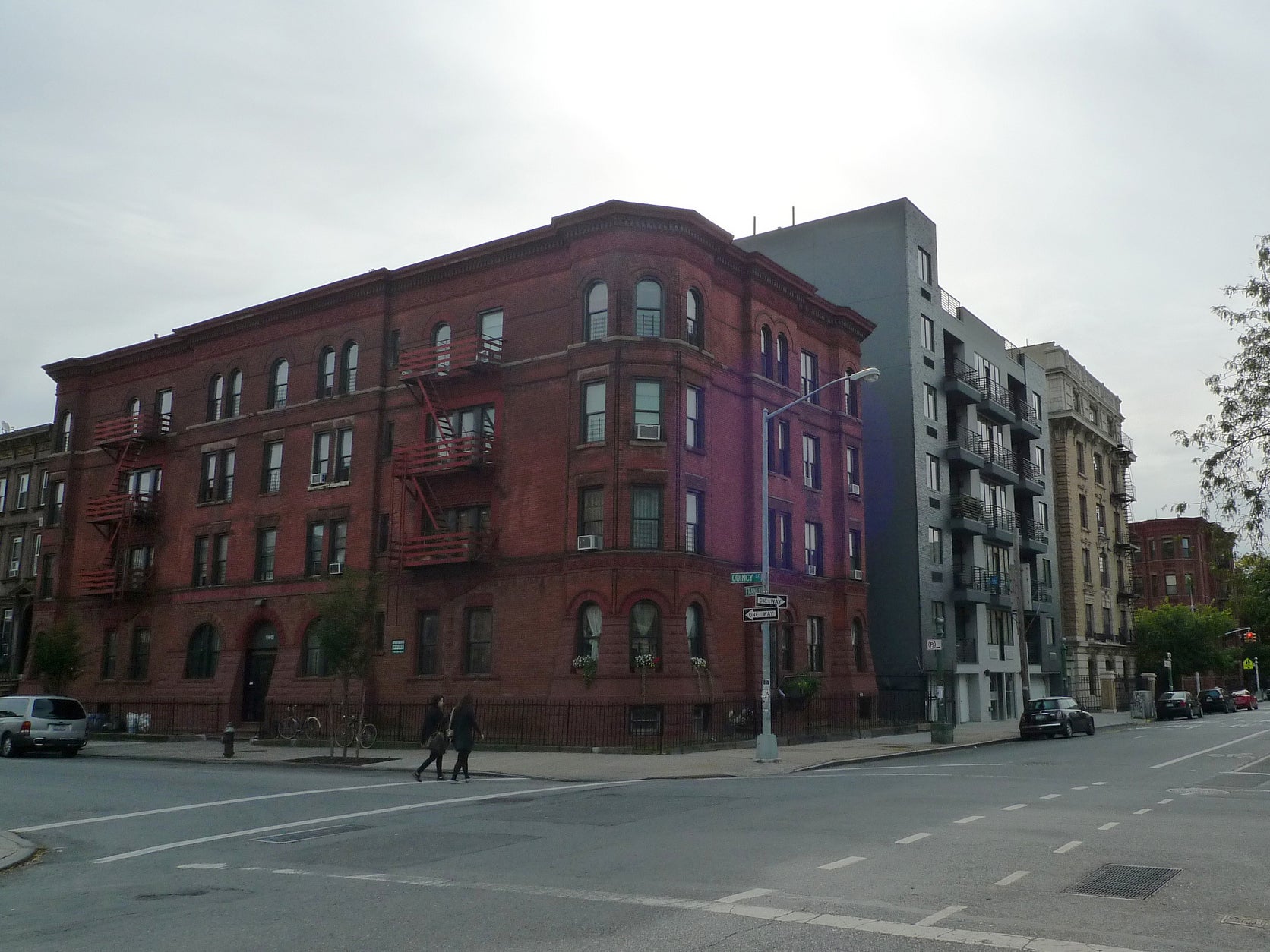
Your support helps us to tell the story
From reproductive rights to climate change to Big Tech, The Independent is on the ground when the story is developing. Whether it's investigating the financials of Elon Musk's pro-Trump PAC or producing our latest documentary, 'The A Word', which shines a light on the American women fighting for reproductive rights, we know how important it is to parse out the facts from the messaging.
At such a critical moment in US history, we need reporters on the ground. Your donation allows us to keep sending journalists to speak to both sides of the story.
The Independent is trusted by Americans across the entire political spectrum. And unlike many other quality news outlets, we choose not to lock Americans out of our reporting and analysis with paywalls. We believe quality journalism should be available to everyone, paid for by those who can afford it.
Your support makes all the difference.New York City policymakers and affordable housing advocates have criticised Airbnb after the company released a report claiming it benefited “predominantly black” neighbourhoods.
Critics called the company’s release of this information a “duplicitous” and “disingenuous” PR push, a smokescreen to obscure how Airbnb is actually “ravaging” black neighbourhoods in New York by taking rental units off the market – which contributes to raised rents amid a significant housing crisis.
“It’s a typical Airbnb puff-piece where they release selective data,” Sarah Desmond, executive director of the Manhattan-based advocacy non-profit Housing Conservation Coordinators, told The Independent. “They control all of the data. No one else has access to the raw data, they only have the summarised whitewashed version that they released. [Airbnb] obviously use the data points that make the case that they want.”
The report, released last week, showed a 78 per cent increase in guests renting Airbnb listings in the 30 postal codes of the five boroughs with the highest black populations over the year to 31 March 2016. Additionally, the number of hosts in the city who listed their spaces – whether private room, shared space or full unit – grew by 35 per cent; but in black neighbourhoods, there was a 60 per cent increase.
“Simply put, Airbnb is growing significantly faster in predominantly black neighbourhoods than it is across the city," the report said.
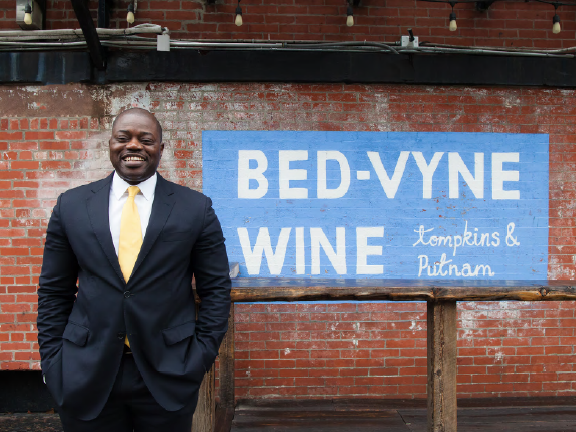
More listings bring more visitors, and more visitors bring their pocketbooks and tourist dollars to the communities, according to the report. At least $43m (£30m) went into these 30 postal codes’ economies – an increase of 63 per cent from 2014 to 2015, and a 68 per cent increase from the year before that.
Airbnb’s figures also show that 58 per cent of listings in predominantly black neighbourhoods were private rooms or shared spaces, “creating a great opportunity for retirees, empty-nesters and anyone with a little extra space to make a bit of extra money". The other 42 per cent are full-unit rentals, despite New York State law that prohibits these types of rentals for less than 30 days.
New York City Council member Robert Cornegy, whose district includes Bedford-Stuyvesant, attributes a boost to the brick and mortar businesses in the community to the 900 Airbnb hosts he says are in the neighbourhood.
“The predominant housing stock [in Bedford-Stuyvesant] is brownstones and limestones – one to three family dwellings,” Mr Cornegy said. The councilman said Airbnb provided his constituents with an additional opportunity to earn extra revenue, whether they were homeowners filling a room for a relative in college, or residents who ran bed and breakfast business in their three-to-four family brownstone.
Airbnb, however, offered no data to show who offered rentals in neighbourhoods such as Bedford-Stuyvesant in Brooklyn; nor did they specify who owned the businesses they said benefit from tourist dollars.
When asked to elaborate on the data provided in the report, Airbnb supplied a statement from Josh Meltzer, its head of public policy for New York: “[The] report is further evidence that Airbnb is positively impacting communities throughout the city.”
“[Airbnb] really doesn’t say whether or not black people are truly benefitting,” said Norrinda Hayat, assistant Professor of Law and Director of the Housing & Consumer Law Clinic at University of the District of Columbia. “They’re saying: ‘People in these neighbourhoods are benefitting – we’re not going to say whether they’re black or not. Businesses in these neighbourhoods are benefitting – we’re not going to say whether they’re black-owned or not.’ I think if that were the case, they’d say it. It would help.”
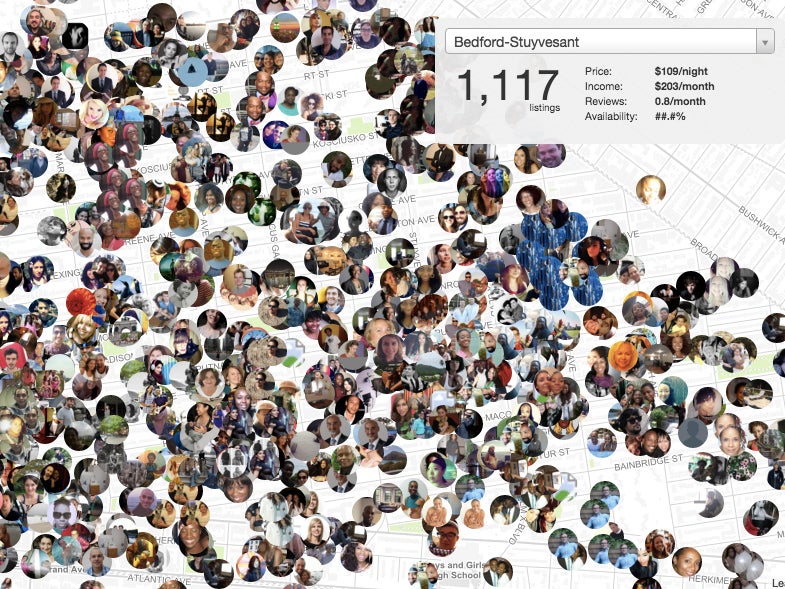
Independent data analyst Murray Cox, creator of the website Inside Airbnb, which analyses raw data pulled from the platform, said he had “no doubt” that some residents of Bedford-Stuyvesant and other historically black neighbourhoods were benefitting. However, he said, “we know those neighbourhoods are not just black neighbourhoods, they’re gentrifying neighbourhoods. Many of those neighbourhoods have a very high percentage of renters – more than the city average".
Bedford-Stuyvesant has undergone significant gentrification over the past 15 years. From 2000 to 2010, the white population increased by 633 per cent, according to Census data.
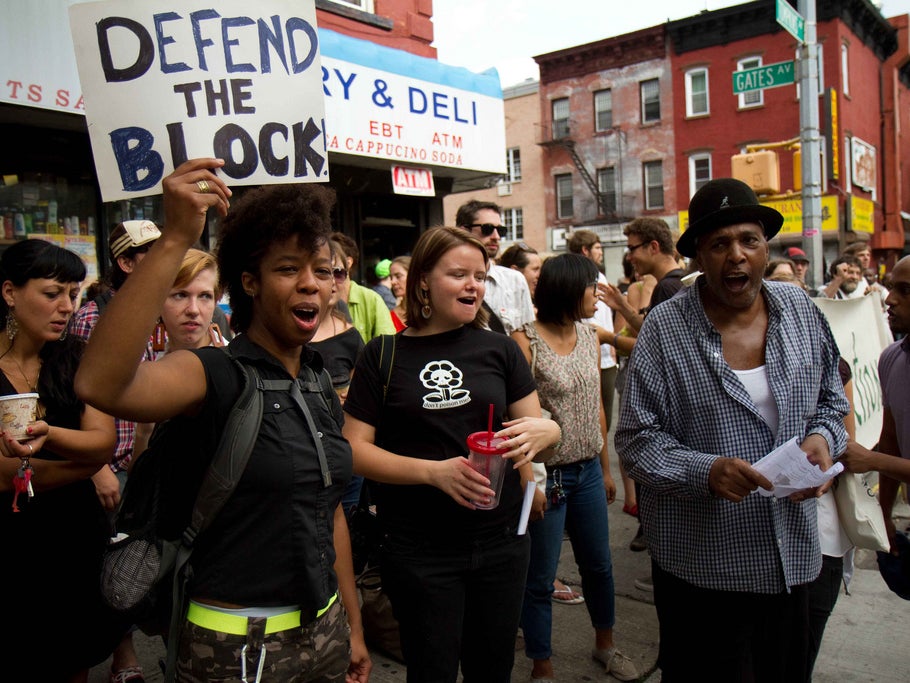
Mr Cox said that because of the growth of the white population and rising rents, the likelihood of Airbnb actually benefitting black residents is rather low.
Although no racial demographics appeared in Airbnb’s report, Mr Cox developed a beta map of Airbnb listings across New York that pulled pictures from host profiles using data from 2014. In Bedford-Stuyvesant, white hosts had a significant presence on the map despite only being 10 per cent of the area’s population, per 2010 Census data.
“The racial makeup of the Airbnb community doesn’t match those underlying neighbourhoods,” Mr Cox said. “When you’re looking at who’s using Airbnb in those neighbourhoods, there’s clearly a disparity away from the black population.”
Based on data presented in Inside Airbnb, 45.7 per cent of about 2,000 Airbnb listings in Bedford-Stuyvesant are full unit rentals, 71.1 per cent of listings are available more than 60 days out of the year, and 28.6 per cent of hosts have multiple listings – increasing the likelihood of unlawful behaviour and the removal of housing stock from the rental market to use as “illegal hotels".
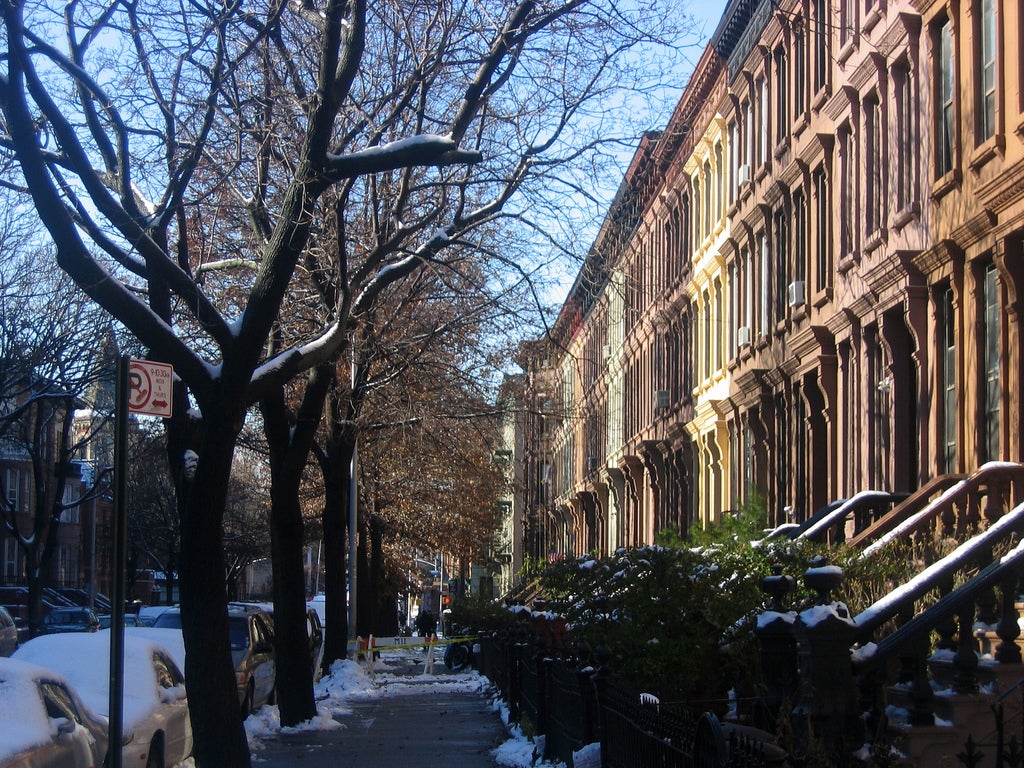
“Even in their release of the data in this study, [Airbnb] can’t help but admit all the illegal rentals that are posted on their website,” said New York City Council member Helen K Rosenthal. Ms Rosenthal and council member Jumaane Williams, who serve on the Committee on Housing and Buildings, are working on legislation to regulate Airbnb, especially when hosts have multiple listings and rent out full units.
Under legislation introduced by Ms Rosenthal in June 2015, illegal hotel operators could face fines of up to $50,000 (£34,000). Airbnb called the proposed measure an “attack on the middle class", saying that everyday users of the platform would face a financial burden should the law pass. Mr Williams said Airbnb relied on conflating middle-class Airbnb users with who use the platform unlawfully.
“They thrive on miscommunication. They thrive on mixing up illegal and legal to make it seem as though we’re going after people that we’re really not,” Mr Williams said, saying that the company was "ravaging" and wreaking “havoc” in the communities they said they were benefitting.
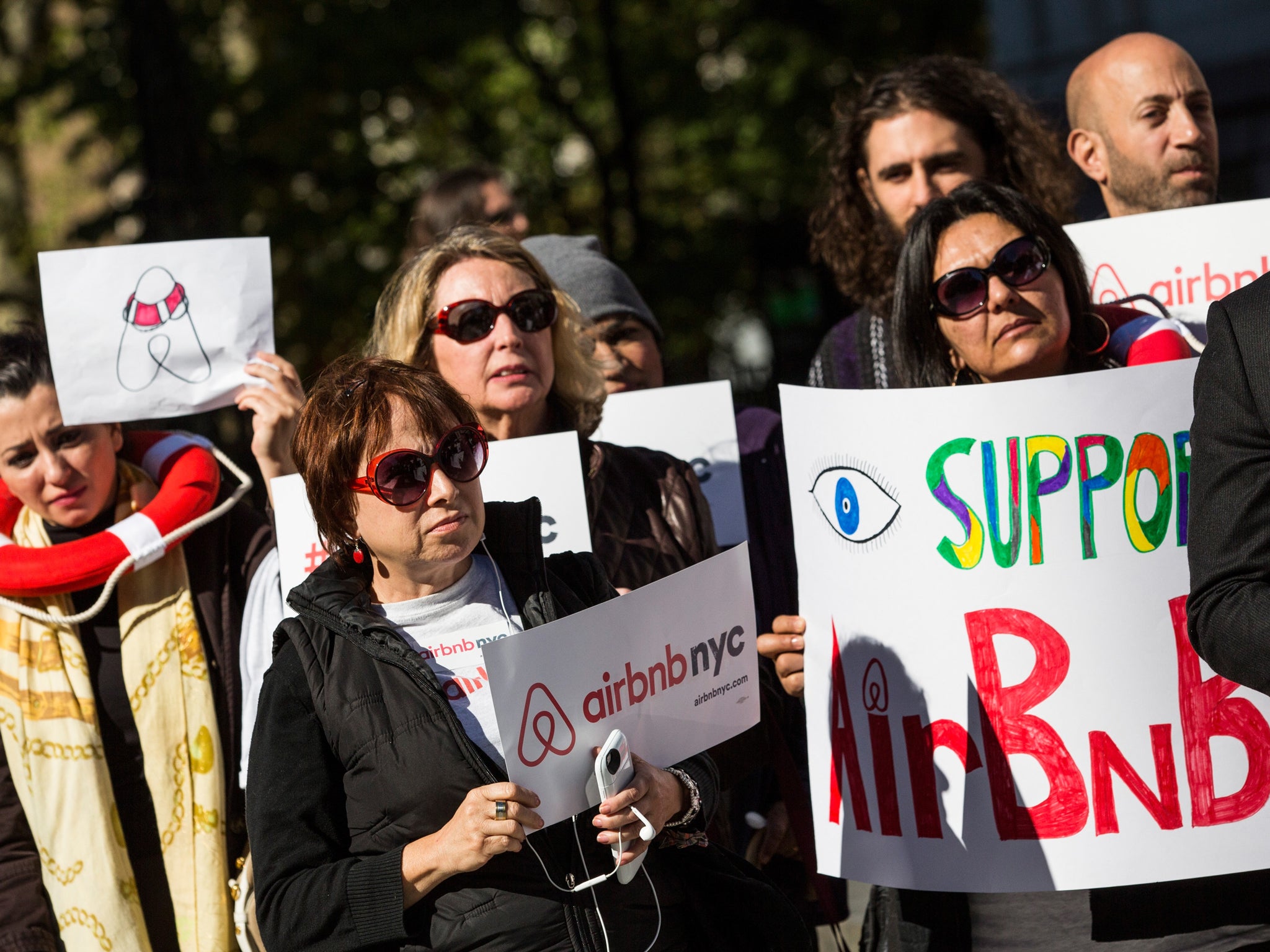
Council members Rosenthal, Williams and Cornegy want to encourage the use of the platform amongst middle-class hosts using it lawfully – Airbnb is not doing themselves any favours by allegedly withholding raw data from the Housing Committee.
“Our council has not bought into their lies,” Mr Williams said. “They try to formulate – very effective, I have to say – campaigns based on lies to put out there. They just have a lot more money than we do, but we have the truth on our side.”
Airbnb said it was willing to work with the City Council to find a way to regulate and enforce these illegal hotels.
“Airbnb opposes illegal hotels in New York – they are bad for our community and do not offer the local experience our travelers seek,” said Mr Meltzer. “We are eager to work with City Council to pass sensible home sharing laws that discourage illegal hotels and allow hosts to share their primary home.”
Join our commenting forum
Join thought-provoking conversations, follow other Independent readers and see their replies
Comments